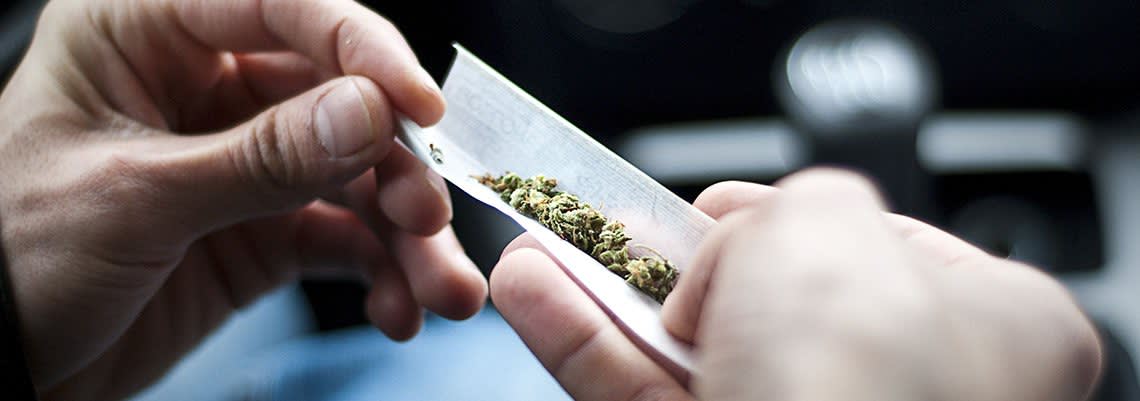
Can I Be Arrested for Drugs that Aren't Mine?
If you pick up a buddy to go out to the movies together and you’re pulled over by police, who conduct a search and find a bag of cocaine in the passenger door pouch, can they charge you with possession of a controlled substance?
Technically, yes, under the doctrine of constructive possession. You did not have physical possession of the drug, but because it was in your vehicle, you had control over it. You and your buddy could be hauled in and both charged with possessing a controlled substance.
Police, in fact, have been known to charge everyone in the same location of a controlled substance with constructive possession just to get someone to rat out the real owner. Of course, there are valid defenses to a constructive possession charge.
If you’re being investigated or have been charged with constructive drug possession in or around Long Beach, California, or nearby in Cypress Hill or Lakewood, contact my firm, McCready Law Group. Over the years I have helped countless others like you and will do everything I can to help you exert your rights. I am committed to protecting your rights and will help you pursue the best possible outcome for your case.
What Is Constructive Possession?
According to California Health and Safety Code 11350, a person can be charged with possession of a controlled substance in one of three ways:
Actual Possession - Actual possession generally means the object (such as a gun) or substance (such as cocaine) is found on your physical person.
Constructive Possession - Constructive possession means the object or substance is under your “domain and control” but not on your physical person.
Joint Possession - Joint possession, which can overlap with constructive possession, might involve several people sharing a substance, such as snorting from the same line of cocaine on a tabletop.
If you live in an apartment with a roommate who has a drug habit, and that roommate stashes his drugs in a closet drawer to which you have access, you could be said to have “domain and control” over that drawer and thus over the contents inside it.
The Knowledge Component
Though domain and control can be used to charge constructive possession, California and many other states also require that you knew, or should have known, that drugs were being concealed in the apartment, or vehicle, over which you have control. Prosecutors have to prove that you both had domain and control and knew of the existence of the drugs, though they don’t have to show that you knew the exact type of drug being stashed away.
In the case of the roommates, if you — the non-user — had knowledge, or should have had knowledge, that your roommate was a user, prosecutors could argue that you had domain and control and knowledge.
The same holds true if you are driving with a friend to the movies. If you knew your friend had a habit, prosecutors could argue the cocaine not only was under your control since it was inside your vehicle, but also that you should have had knowledge that your buddy’s bag could contain a controlled substance.
Proving Knowledge
Of course, prosecutors still have to convince a jury beyond a reasonable doubt that you had knowledge plus control. The control part, though hazy enough itself at times, is probably the easier of the two to prove. Proving knowledge presents a completely higher level of difficulty.
Does just knowing a friend likes to use cocaine mean you have knowledge that a container he stows in your car without telling you contains a controlled substance? Prosecutors would have to prove “you should have known.”
Rely on the McCready Law Group to Help
Possession of a controlled substance can land you in county jail for up to a year, even if your possession is merely constructive. Generally, for a first offense for a small amount of a controlled substance, the judge might place you on probation and/or give you a fine and community service. You may also qualify for the Los Angeles County Drug Court Program, which focuses on treatment and rehabilitation.
So, to answer the question of whether or not you can be busted for a friend transporting a controlled substance in your vehicle, or stashing it in your joint residence — the answer can vary depending on the circumstances. You could be charged, but proving both domain and control and knowledge can pose fairly big legal hurdlers. Still, you do not want to face any controlled substance possession charge alone. You will always want the experience, knowledge, and resources of a skilled drug defense attorney.
If you live in or near Long Beach, California, or really anywhere in Los Angeles or Orange County, and you’re facing a drug possession charge, contact the McCready Law Group as soon as possible. I will listen to your story, advise you on all aspects of your case, and work with you to develop a strong defense strategy aimed at helping you pursue the most favorable outcome.
